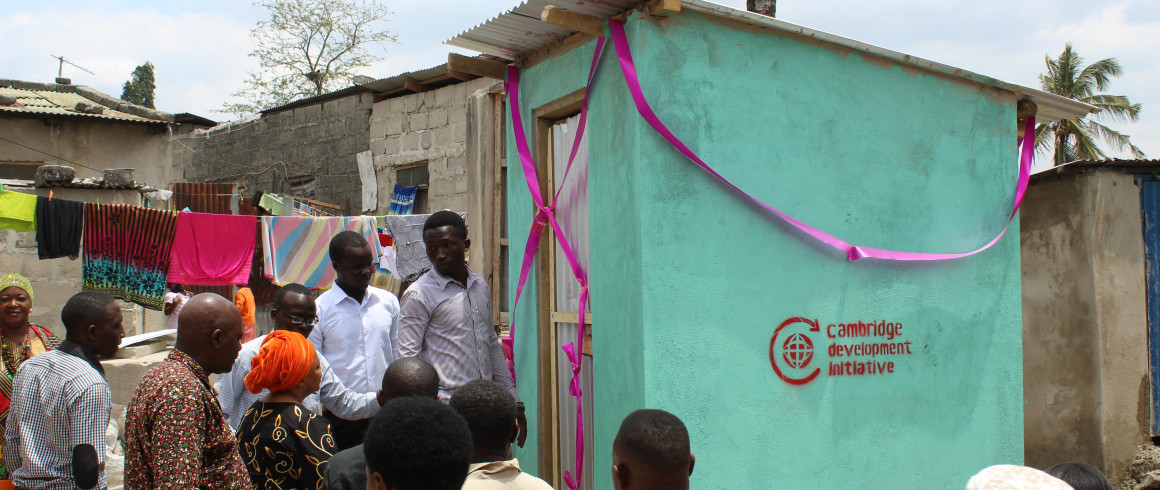Student Volunteering Week Part 5: CDI
The Cambridge Development Initiative (CDI) is a Cambridge society that aims to provide students with the opportunity to undertake high impact, sustainable volunteering work. They take a collaborative approach to volunteering; every Director, Project Director or volunteer in the UK has a Tanzanian counterpart with an equal level of responsibility for project decisions. Will Gayne (2013) is a Project Director working on sanitation in Dar es Salaam, Tanzania.
 “CDI works on four different projects: sanitation (WaSH), health, entrepreneurship, and education. I’m directing the WaSH project but our approach is different to a lot of volunteering programmes. Sustainability underlies everything we do, so we’re not sending students to build toilets themselves as is the case with some “voluntourism” schemes. Rather, we’re acting as facilitators for community mobilisation, helping local people to take responsibility for of their own sanitation. All the toilets and networks are built by local technicians, who frankly do a much better job than I could hope to! We bring together local leaders, who take responsibility for maintaining the toilets after we’ve gone. If you can empower people in this way, give them a tangible sense of ownership of something, they’ll look after it. Then you can be sure that you leave something behind that will last.
“CDI works on four different projects: sanitation (WaSH), health, entrepreneurship, and education. I’m directing the WaSH project but our approach is different to a lot of volunteering programmes. Sustainability underlies everything we do, so we’re not sending students to build toilets themselves as is the case with some “voluntourism” schemes. Rather, we’re acting as facilitators for community mobilisation, helping local people to take responsibility for of their own sanitation. All the toilets and networks are built by local technicians, who frankly do a much better job than I could hope to! We bring together local leaders, who take responsibility for maintaining the toilets after we’ve gone. If you can empower people in this way, give them a tangible sense of ownership of something, they’ll look after it. Then you can be sure that you leave something behind that will last.
At the moment we’re working in Dar es Salaam, the biggest city in Tanzania. Sanitation access is extremely limited, particularly in “unplanned settlements” where a large proportion of the population live. Something like 80% of the city uses pit latrines, basically lined holes in the ground, with no system to take waste out of the community. The solution we’re using, Simplified Sewerage, uses plastic piping laid just below ground. It’s been widely implemented, in Pakistan and Brazil with great success. The key advantage is that you can put in sanitation infrastructure retroactively, winding it around existing housing. When you think about it traditional sewerage, massive concrete sewers laid below ground, almost always gets laid in advance of housing being built. Otherwise installing it is very disruptive. But, at the moment, we’re seeing mass urbanisation across the world, with more and more people moving to the city and living in these “unplanned settlements”, building houses without sanitation infrastructure being laid. A big part of the WaSH project is taking the idea of simplified sewerage to Africa, showing that it can work in the setting of a major African city. The problems facing Dar aren’t unique, so if it works here it’s proof of concept for a solution that could benefit a number of cities across the continent.
The other big part of the project is trying to connect the sim plified sewerage network to the “Flexigester”, an anaeraobic digester that turns the sewage into Biogas. It was designed by our partners, SOWTech, a community interest company based here in Cambridge. It’s made of rubber so is a cheap alternative to traditional digesters. Our hope is that by bringing these two components together we can take waste out of the community and turn it into a sustainable fuel, thereby also addressing the huge problem of deforestation for wood and charcoal fuels.
We’ve had a lot of success over the past four years, at the moment we’re working with the local government water board agency, DAWASA, who have supported the project in the past, to consider how this approach could be taken to scale. So it’s incredibly exciting to be a part of!
This year’s recruitment drive has just ended, with unprecedented interest in CDI, a testament to how each new committee has evolved it. Our big recruitment drive is end of January/early February where we recruit 30 or so volunteers to come out to Dar es Salaam andwork with us on our projects. At the same time as we’re recruiting, our Tanzanian counterparts and Tanzanian project directors are recruiting their team. We all get to know each other over Skype before the start of the summer project, and then we live and work alongside them throughout the summer. If you’re keen to get involved keep an eye on the CDI Facebook page. You can also read more about the sanitation project on the University website.”

